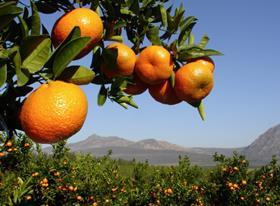
While certainty on Brexit – hard or soft – is some way away, South African citrus growers say a hard version will most probably be not too bad a thing, potentially bringing benefits which they currently do not enjoy while the UK is firmly entrenched in the European Union.
Justin Chadwick of the South African Citrus Growers Association (CGA) recently, in an attempt to enlighten growers, asked the question: “Anybody care to explain Brexit to us mere mortals from the Colonies?” He says one definition of Brexit is ‘saying you are going to leave the party, but staying”.
“So with four possible outcomes many commentators are trying to determine the consequences of these possibilities,” Chadwick continued. “With a ‘hard Brexit’ becoming more and more likely, those exporters supplying citrus to the UK will be happy to hear that under such a scenario all citrus tariffs will reduce to zero. Citrus exported from South Africa would thus enter the UK at 0 per cent duty throughout the year.”
South African citrus sources have long been hoping that, with Britain outside the EU, some of the harsh laws applied to the country’s citrus could in future fall away as far as the UK is concerned. Other fruit sectors have their own concerns but they would also hope that the firm trade relations between the South African fruit industry and the UK, which has existed for more than 125 years, would extend for many more to come.
Britain’s entry into the EU back in 1974 cost South Africa its preferential trade agreements with the UK, which existed prior to this date. It represented a period of hardship for South African growers. In the end table grape growers had to pay 18 per cent duty and quotas were introduced on apples every time the grower lobby in the EU demanded it.
Since then, the rules of international trade – which previously allowed massive subsidies for EU farmers – have been re-written and the World Trade Organisation (WTO) has been founded. To a degree previous tariff restrictions were reduced, but phyto- and plant health laws replaced them. South African citrus growers hope that in post-Brexit life the laws and regulations pertaining to plant health in the UK will change. As Chadwick puts it, South Africans citrus could be imported into the UK all year round without duties. It is however also hoped that there will be better arrangements on the issue of CBS (citrus black spot).
In the UK this will be of huge benefit, specifically to late season soft citrus, particularly Mandarins. This will, however, also get Spanish producers hot under the collar, because they are already unhappy about the competition South African fruit is presenting to their early season, possibly less popular, varieties.
As South Africa is increasing its citrus production, the industry will keep a close watch on the very fluid situation in the development of a final Brexit deal. They will have to tread carefully on both sides of the Channel in order to retain these markets, which are so important for the country’s citrus industry.



